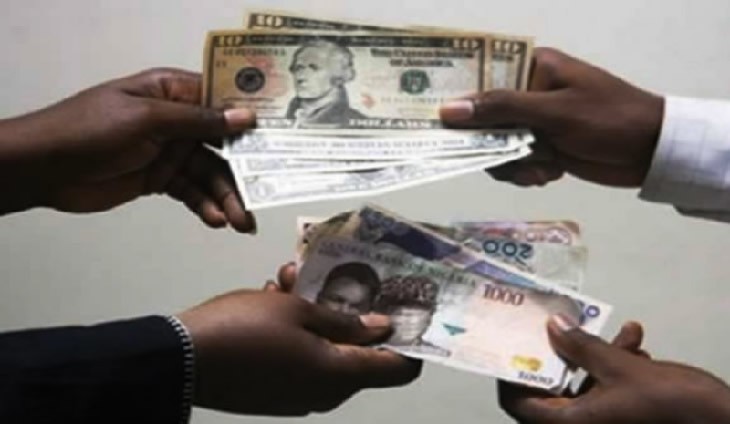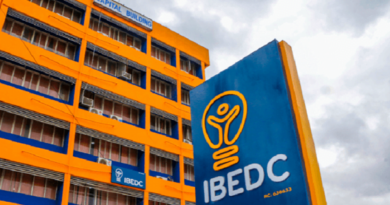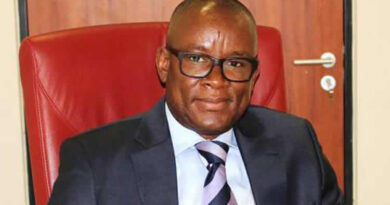Pension funds rise by 22% to N18tn – NAICOM
PenCom’s ‘Unaudited report on pension funds industry portfolio for the period ended December 2023; Approved Existing Schemes, Closed Pension Fund Administrators and RSA funds (including unremitted contributions @CBN & Legacy Funds)’ showed that the country’s pension funds appreciated by 22.43 per cent in 2023.
During this period, the net asset was up to N18.36tn from N14.99tn in 2022.
On a month-on-month basis, pension funds grew by 2.39 per cent to N18.36tn in December, compared to N17.93tn in the previous month.
According to the report, N11.92tn of the assets was invested in Federal Government securities representing 64.9 per cent of the total assets, and a 24 per cent year-on-year growth in investment in FGN securities.
Corporate debt securities followed at 10.4 per cent, with domestic ordinary shares making up 8.6 per cent of the total Assets Under Management.
Despite the increase, industry watchers consider the sector underpenetrated, as its total AUM was equal to only nine per cent of Nigeria’s 2022 Gross Domestic Product, which was beneath the global average of 29.4 per cent in 2020, according to World Bank data.
Further analysis of PenCom’s data showed the dominance of FGN securities, constituting the largest asset class for pension funds.
FGN bonds, in particular, make up 96 per cent of total FGN securities and more than 60 per cent of fund administrators’ overall asset mix.
The surge was attributed to increased supply by the Debt Management Office to meet the Federal Government’s domestic funding targets and address the budget deficit in the N23tn budget for 2023.
During the year, Pension Fund Administrators invested in the FGN securities driven by the relatively safe and stable returns and the prevailing yield environment.
That was despite a 2.25 per cent increase in the monetary policy rates to 18.75 per cent by the Central Bank of Nigeria in 2023.
On the domestic front, investments in domestic equities experienced a 70 per cent year-on-year increase to N1.57tn.
The surge was linked to the robust performance of the Nigerian Exchange in 2023, where the All-Share Index reached an unprecedented 74,000 index points—and closed the year at over 45 per cent.
The market’s resilience was attributed to various factors, including robust corporate earnings, dividend declarations, government-led market reforms, and increased interest from both domestic and foreign investors.
Foreign transactions on the NGX increased as of November 2023, indicating positive investor sentiment, but the domestic investor segment outperformed foreign investors by approximately 52 per cent.
While real estate and private equity saw year-on-year growth, they remained a small portion of the overall portfolio.
Other alternative investment classes, such as foreign ordinary shares, infrastructure funds, mutual funds, and real estate, did not gain significant traction in the Nigerian market.
On fund types, the report indicated steady growth in Retirement Savings Account funds, as more Nigerians participate in the Contributory Pension Scheme.
However, the Retiree Fund accounts for the largest share, representing 58.02 per cent of total AUM, followed by RSA Funds at 30.59 per cent, and Closed Pension Fund Administrators at 1.39 per cent.
Analysts at Cowry Asset Management Limited in their weekly report projected that the pension industry’s positive growth trajectory would play a pivotal role in Nigeria’s economic development in the mid to longer term.
“The strong performance of the equities market is anticipated to contribute significantly to the growth of total AUM. Additionally, expectations for the Central Bank of Nigeria to adopt a dovish stance in 2024 and beyond could lead to a tapering of interest rates, encouraging investments in government securities such as bonds and other money market instruments. This may particularly benefit fund administrators with longer investment horizons.
“We also anticipate more attractive opportunities for increased penetration into the pension fund space, thereby promoting higher pension savings in Nigeria above the current level,” the Cowry Asset report stated.
It was earlier reported that the value of pension funds declined by 45.18 per cent when valued in dollars, following the devaluation of the naira.
Data obtained from the National Pension Commission’s website showed that the net asset value of pension funds stood at N17.35tn as of September, amounting to $19.83bn when dollarised, using the official exchange rate of 874.71/$ on November 10.
The Head of the Corporate Communications Department, PenCom, Abdulqadir Dahiru, said that the devaluation of Nigeria affected not only pension funds but the entire economy.
Speaking on what the commission was doing to hedge against the microeconomic headwinds, he said, “Naira devaluation did not just affect pension funds; it affected everybody, and it is a twin thing. You have inflation and you have devaluation.
“So, anybody who has money in the bank can tell you what inflation has done to his money. It reduces the value of the currency because then you need more of that currency to buy the same amount of the goods and services.”








